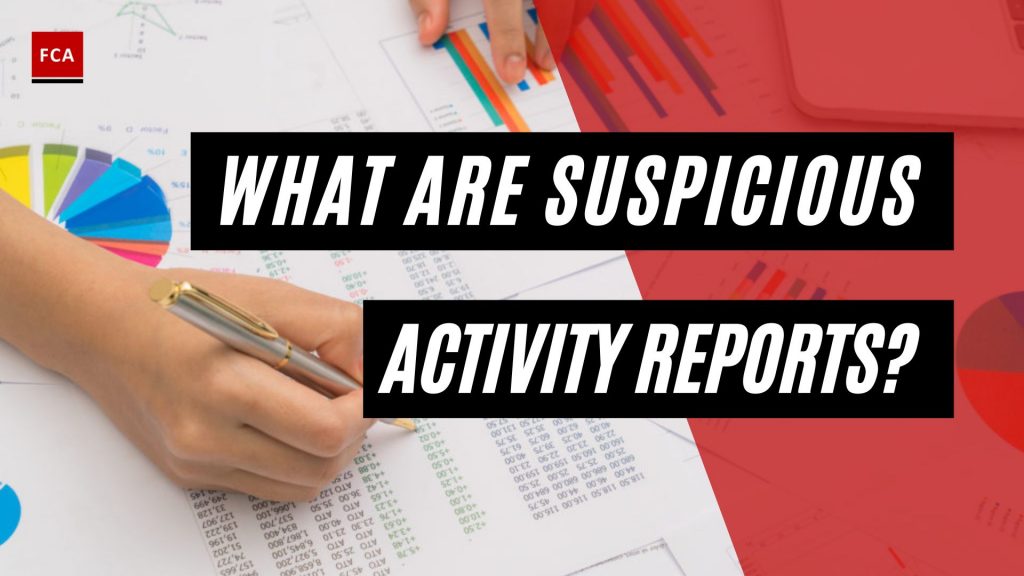What are suspicious activity reports? Markets Compliance Regulations such as MAR extends the scope of the requirement to report suspicious transactions to the relevant competent authority. The reporting requirement extends to suspicious orders, modification to and/or cancellation of transactions or orders, and OTC derivative transactions and orders.

What Are Suspicious Activity Reports?
MAR also requires market operators, investment firms, and persons professionally arranging or executing transactions to establish and maintain effective systems and procedures to prevent and detect actual or attempted market abuse and to report same to the competent authority without delay.
The Financial Crimes Enforcement Network (FinCEN), after it consulted with the stakeholders of the U.S. Securities and Exchange Commission and the Commodity Futures Trading Commission (CFTC), issued guidance that, under the Bank Secrecy Act (BSA) regulatory requirements, securities broker-dealers, and commodity brokers may share the Suspicious Activity Reports (SARs) with the parent entities, both domestic and foreign entities.
Filer Of A SAR
The filer of a SAR is prohibited from notifying any person involved in the suspicious activity or transaction that the activity and transaction have been reported. The regulations issued by the FINCEN have interpreted the confidentiality provision as generally prohibiting a securities broker-dealer, or introducing broker in commodities from disclosing the SAR, except where such disclosure is requested by the law enforcement authorities, and agencies including securities and futures industry regulatory agencies, or the FINCEN.
The securities brokers, or introducing brokers that file a SAR may disclose to companies within its group that information about the customer and the transaction(s) are reported. To fulfill the SAR responsibilities, the parent companies may have a valid need to review compliance by securities broker-dealers or introduce a broker which has legal requirements to identify and report suspicious activity. The securities broker-dealer, futures agents, or introducing broker may share a SAR with the parent company. If the corporate structure of a securities broker-dealer, or futures agent, includes various parent companies, the filing institution’s SAR may be shared with each company in the group.
FinCen
The FinCEN has not taken a definitive position concerning whether a securities broker-dealer, commission agents, an introducing broker in commodities are permitted to disclose to the companies within its group, the SAR itself. The conclusion to this matter became an important issue, particularly in a global financial market.
There may be circumstances under which a securities broker-dealer, commission agent, or broker would be liable for disclosure of a SAR by a recipient parent company. Therefore, the stakeholders involved, as part of the anti-money laundering program, must have to ensure that a written confidentiality agreement is made that specifies that the parent company shall protect the confidentiality of the SAR through the application of appropriate compliance controls. The sharing of a SAR with a non-U.S. company raises additional issues about the ability of the foreign company to protect the sharing or filing of SAR as per applicable foreign laws.
Securities And Exchange Commission
The FinCEN, in consultation with the Securities and Exchange Commission (SEC) and the Commodity Futures Trading Commission, is considering whether a SAR may be shared with an affiliate company, inside the United States or where the affiliate company is located abroad. These issues are required to be resolved through the confidentiality agreement.
The recipient foreign parent company should not disclose further any SAR, or the fact that it has been filed however, the foreign company may disclose without permission underlying information that does not explicitly reveal that a SAR was filed considering the requirements of applicable laws and regulations.
Sharing Of A SAR With A Non-US Company
The sharing of a SAR with a non-U.S. company raises issues about the ability of the foreign entity to protect the SAR in light of possible requests for disclosure abroad that may be subject to foreign law. These concerns will need to be addressed in the confidentiality agreements or arrangements.
The recipient foreign parent entities) may not disclose further any Suspicious Activity Reports, or the fact that such report has been filed; however, the foreign parent entity (or entities) may disclose without permission underlying information (that is, information about the customer and transactions reported that does not explicitly reveal that a SAR was filed.
Final Thoughts
A Suspicious Activity Report (SAR) or Suspicious Transaction Report (STR) in financial regulation is a report made by a financial institution about suspicious or potentially suspicious activity. The criteria for determining when a report must be made vary by country, but generally are any financial transactions that do not make sense to the financial institution; are unusual for that particular client; or appear to be done solely to conceal or obfuscate another, separate transaction. The report is filed with that country’s financial crime enforcement agency, which is typically a specialized agency tasked with collecting and analyzing transactions and reporting them to relevant law enforcement.








